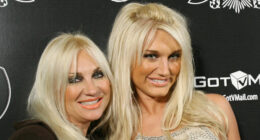
Maintaining a healthy weight does not have to be complicated, explains nutritionists and dieticians. Ensuring a “balanced diet” is the key to losing weight and staying slim, rather than obsessing over calories.
Calorie counting has become a fixation; rarely can anyone purchase a food item from a supermarket and not be confronted with its calories on the nutritional information label.
But is this necessarily a positive or helpful thing?
Dr Ellie Cannon GP explained: “Calories are a measure of how much energy something has. It’s really about how much energy the food is going to give you.”
The Department of Health recommends that the average calorie intake for men should be 2,500 per day, and 2,000 for women.
However, some experts maintain that counting calories is actually counterproductive to losing weight.
These numbers are reductive and don’t take into account individual people, rather collectivising them.
Nutritionist and food blogger Pixie Turner stated: “The amount of calories that we should be eating really varies considerably among the population. It depends on things like your gender, the amount of exercise that you do, it even depends on things like stress.
“There is no one arbitrary number.”
“Food is so much more than that: it’s pleasure, it’s sociable.”
READ RELATED: Weight loss: Make ‘smart food choices’ alongside exercise – foods to try for slimmer waist
Dietician and nutritionist Priya Tew provided an alternative: “In an ideal world I would say let’s just do away with calories, don’t look at them, don’t think about them, just eat a balanced diet.”
Indeed, counting calories is a new phenomenon that began just a few decades ago.
Honorary Consultant Cardiologist Dr Aseem Malhotra stated: “Granny wasn’t counting calories and there was no obesity in their generation.”
Obesity is becoming more and more prevalent, as is Type 2 diabetes, which suggests that counting calories is not a viable weight loss method.
READ MORE: Woman lost 4st without ‘having to lift a finger’ after New Year’s
Many dieters overcomplicate weight loss and start bulk buying so-called “superfoods” in an attempt to shed excess fat.
However, Dietician and Nutritionist Dr Sarah Schenker advised against this: “It’s a bit like taking the alphabet and saying that the letter Q and the letter T are super and the rest are not as super. You need all of the letters of the alphabet to be able to communicate, just as you need a wide spectrum of foods to be healthy.”
According to Science Journalist Nathan Rao, others opt for a gluten free diet in the hope of losing weight.
Fitness journalist Debbi Marco explained: “A gluten free diet isn’t always a healthy one, especially if you’re buying gluten free biscuits, gluten free cake and gluten free ready meals. You still have to abide by the rules of a healthy diet, which is plenty of fresh fruit and vegetables, a balanced diet, not too big portions, and again, exercising regularly.”
The experts urged dieters to make mindful food choices based on common sense and balance, as opposed to restrictive eating and calorie counting.
Source: Daily Express | Diet






